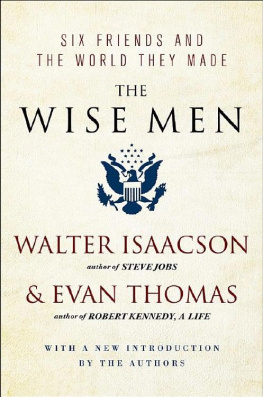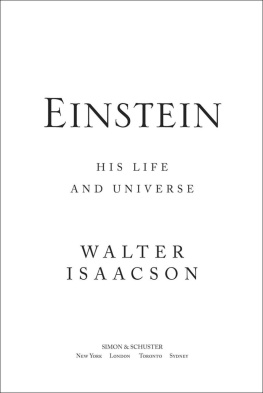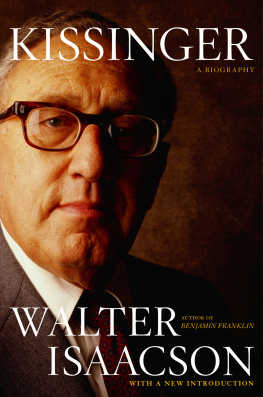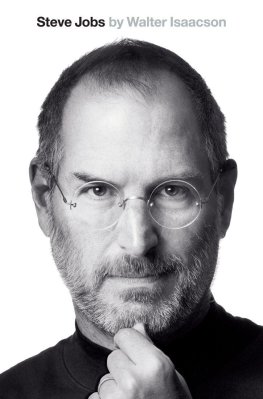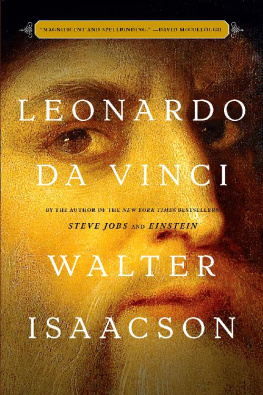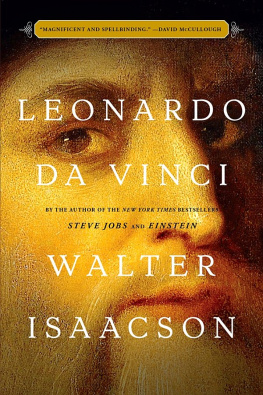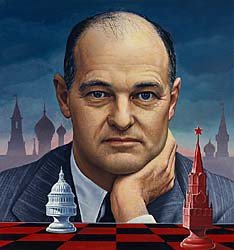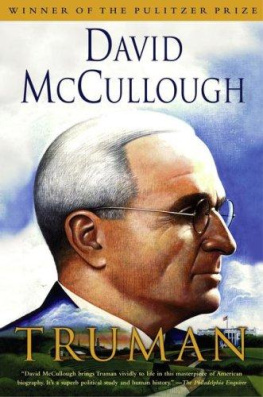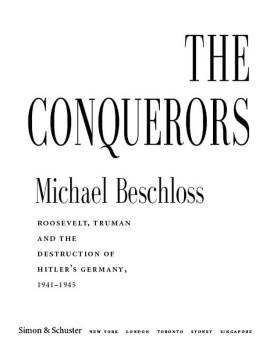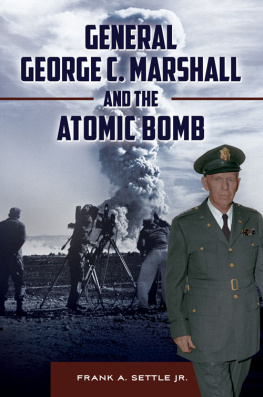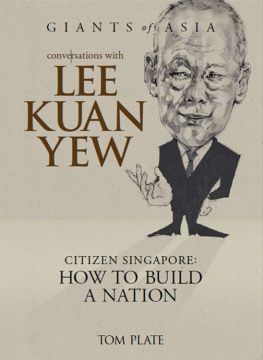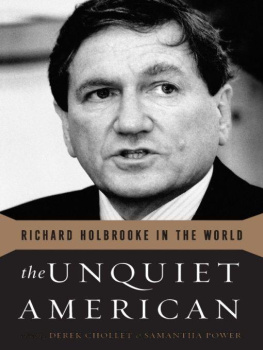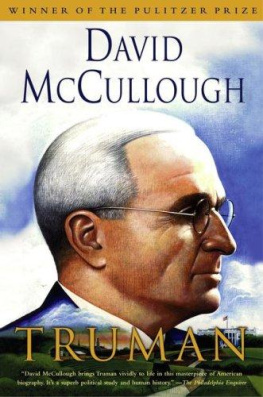
Thank you for downloading this Simon & Schuster ebook.
Get a FREE ebook when you join our mailing list. Plus, get updates on new releases, deals, recommended reads, and more from Simon & Schuster. Click below to sign up and see terms and conditions.
CLICK HERE TO SIGN UP
Already a subscriber? Provide your email again so we can register this ebook and send you more of what you like to read. You will continue to receive exclusive offers in your inbox.

To Cathy and Oscie,
and to the memory of Betsy Isaacson

CONTENTS

ARCHITECTS OF THE AMERICAN CENTURY
I t was not a lavish party. Despite his enormous wealth, Ambassador Averell Harriman was uncomfortable with social frivolity, particularly when there was a war going on. The guests who gathered at his Moscow residence on the night of April 12, 1945, had to make do with dance music from Harrimans Victrola and snacks from the embassys kitchen. Many had already headed home by 1 A.M. when the telephone rang with the news from Warm Springs. With his daughter and a few close aides, Harriman went upstairs and sat by the fireplace in his bedroom. There, warming himself against the Russian night, the financier-turned-statesman ruminated about the death of the only President he had ever served and speculated about the man who had become the only President in his lifetime he had never met.
Harriman had grown increasingly dubious about Franklin Roosevelts hopes that the U.S. and the U.S.S.R. could be allies in peace as they had been in war, and he had been hectoring Washington for permission to return home and present his case in person. With an inexperienced new President suddenly in power, one whose only trip overseas had been as a soldier during World War I, Harriman bluntly cabled his intention to come back for consultations. When the State Department finally relented, Harriman left Moscow aboard his own private plane at 5 one morning and arrived in Washington just over forty-nine hours later, easily setting a new record for such a journey.
As embassy counselor, George Kennan had helped harden Harrimans views about the Soviets and drafted some of his sharpest cables. Harrimans departure left the introverted young diplomat in charge and gave free rein to his tendency to send long telegrams describing the inherent conflicts between America and the Soviet Union. Roosevelt had pursued his own foreign policy with little heed to the Cassandras in the State Department. Harry Truman, on the other hand, stayed up late his first evening in office poring over recent reports. When Kennans messages began to flow, he found a receptive reader in the White House for a change. As Truman noted after one particularly downbeat missive from Kennan about the Soviets: I realized only too well the implications in this message.
John McCloy, Assistant Secretary of War, was a man more suited to action than reflection. After an aide rushed into his Paris hotel room and awakened him with the news, McCloy jotted in his diary that Roosevelt would probably be remembered as a great President, but the press of current and impending events leaves no time to speculate on his position in history. McCloys inspection tour of Europe had heightened his conviction that the U.S. must not retreat into isolation after this war the way it had after the last. A ravaged Continent would have to be rebuilt. America would have to assume its rightful position of leadership in a shaken world. Cutting short his trip, he rushed back to Washington, stopping briefly in London to attend the memorial service for Roosevelt in bomb-scarred St. Pauls. He found it fitting that the boys choir sang The Battle Hymn of the Republic, though he noted that they sang it too slowly.
Robert Lovett, McCloys Heavenly Twin as an Assistant Secretary of War and Harrimans former Wall Street partner, was preparing to depart for Europe and Asia to oversee the redeployment of the air force he had built. Convinced that strategic bombing had softened Germany for the kill, he was anxious to do the same to Japan. Yet in the back of his mind, he later recalled, there were thoughts about a revolutionary weapon he barely understood and which the new President knew almost nothing about. Lovett decided to delay his trip while President Truman pondered the best way to pursue the war against Japan.
Dean Acheson, who as Assistant Secretary of State had worked with Harriman on Lend-Lease negotiations with the Kremlin, was having his portrait done by photographer Yousuf Karsh when he heard the news. Most of his friends had never met Truman and were dismayed by the prospect of a failed haberdasher from Missouri becoming President at such a critical time. But Acheson sensed that Truman had good instincts and would depend on the right people. I think he will learn fast and inspire confidence, Acheson wrote to his son.
Only hours after he was handed the news flash, Charles Bohlen began preparing a background paper for the new President. As the State Departments liaison to the White House, Bohlen met Truman for the first time the next afternoon when he delivered the report. The Soviets were ignoring the pledges made at Yalta two months earlier, it declared, and they had been consistently sabotaging Ambassador Harrimans efforts to reach an agreement over Poland. Upon Harrimans arrival in Washington, Bohlen set up a meeting with Acheson and others at the State Department, where the ambassador stressed the basic and irreconcilable differences of objective between the Soviet Union and the United States. Then Bohlen walked with Harriman to the White House, where the education of Harry Trumanon the Soviets, on the need for America to help rebuild Europe, on the bombbegan in earnest.
Six friends. Their lives had intertwined from childhood and schooldays, from their early careers on Wall Street and in government. Now they were destined to be at the forefront of a remarkable transformation of American policy. As World War II drew to a close, most of their fellow citizens wanted nothing more than to turn inward and, in Harrimans words, go to the movies and drink Coke. But by breeding and training, this handful of men and a few of their close colleagues knew that America would have to assume the burden of a global role. Out of duty and desire, they heeded the call to public service. They were the original brightest and best, men whose outsized personalities and forceful actions brought order to the postwar chaos and left a legacy that dominates American policy to this day.
Working together in an atmosphere of trust that in todays Washington would seem almost quaint, they shaped a new world order that committed a once-reticent nation to defending freedom wherever it sought to flourish. During the late 1940s, they authored a doctrine of containment and forged an array of alliances that, for better or worse, have been the foundation of American policy ever since. Later, when much of what they stood for appeared to be sinking in the mire of Vietnam, they were summoned for their steady counsel and dubbed the Wise Men.

Next page
